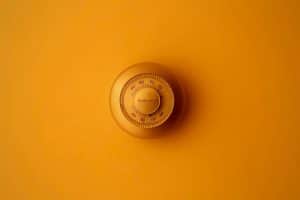 Freon is the name of a class of chlorofluorocarbons (CFCs). It is a colorless gas commonly used as a refrigerant for air conditioners. Every air conditioning system uses a refrigerant to generate cool air, so proper maintenance is crucial.
Freon is the name of a class of chlorofluorocarbons (CFCs). It is a colorless gas commonly used as a refrigerant for air conditioners. Every air conditioning system uses a refrigerant to generate cool air, so proper maintenance is crucial.
How Does Freon Work?
Every air conditioner has a system of coils and compressors. The AC unit first compresses the Freon gas, heating it up. The hot gas travels through the coils, cools down and condenses into a liquid. The cool liquid Freon then absorbs warm air from the outside, which displaces the cold air that is delivered into the home or vehicle.
A common issue occurs when an AC unit stops blowing cold air. This can be due to a Freon leak, which can be toxic and cause harm to the earth’s ozone layer. In fact, the Montreal Protocol of 1987 set standards to reduce the U.S. consumption of CFCs including Freon to reduce its impact on the environment. Most modern air conditioners use a safer and more energy-efficient refrigerant, although units manufactured in 2003 and earlier may still use Freon. Today, the term Freon is often used to refer to any type of refrigerant.
Troubleshooting a Freon Leak
If the level of Freon in your AC unit depletes, you most likely have a leak. However, other issues can cause an AC unit to blow hot air. A clogged or damaged filter can limit airflow. A malfunctioning thermostat can trick your AC unit into pumping hot air or no air at all. Worn insulation can also inhibit your AC unit’s performance. Before you add or replace Freon, you should always diagnose the true cause of the problem.
While it is best to have a professional fix most AC issues, you can replace the insulation around the refrigerant lines by yourself. Start by inspecting the refrigerant lines, which typically run from the outdoor condenser to the indoor evaporator. If the insulation looks worn, it is likely compromising the performance of your unit and should be replaced. You should buy the same type of insulation that originally covered the refrigerant lines. Refer to the user handbook that came with your AC unit to learn how to properly remove the worn insulation and install the new insulation. Always shut off the condenser and evaporator before performing any maintenance or repairs on your AC unit.
Contact a Professional Air Conditioning Technician
Due to the necessity of Freon in the function of your AC unit, you should always contact a professional to fix a potential issue. Improper handling of AC components can compromise their performance and create a fire hazard. Having a professional inspect and maintain your AC system regularly can help prevent issues before they arise. It is especially vital to ensure your AC unit is in working order prior to the demanding summer months, during which old or faulty components are most likely to give out. Planning ahead will help ensure that you stay cool and comfortable.
For more helpful information on your HVAC system, or to schedule a service call, visit our website today.

